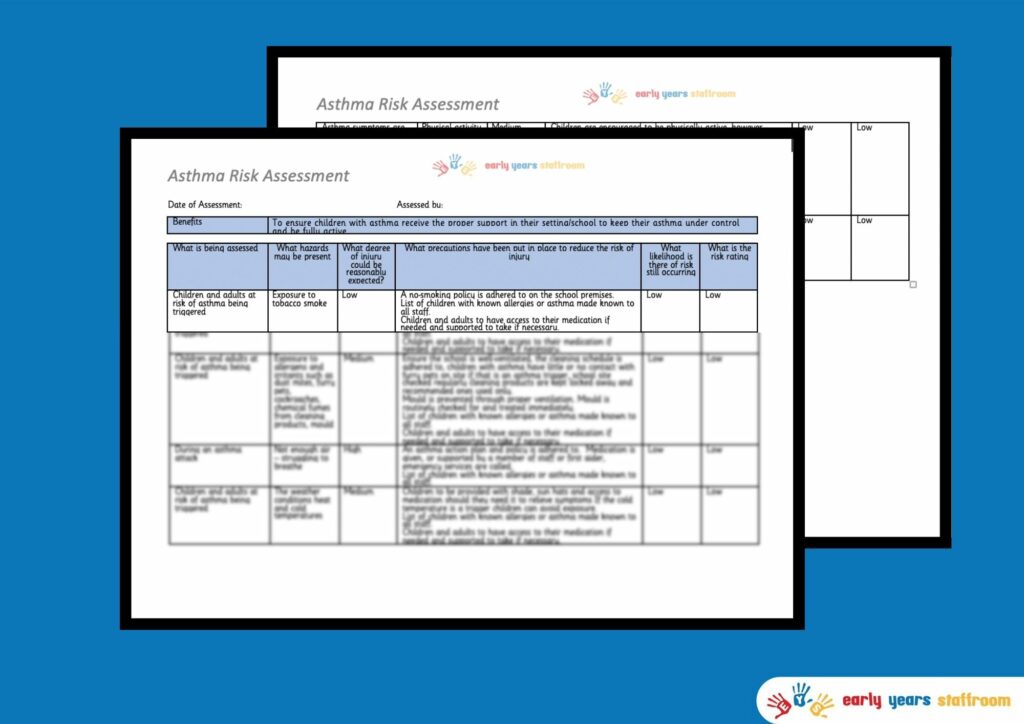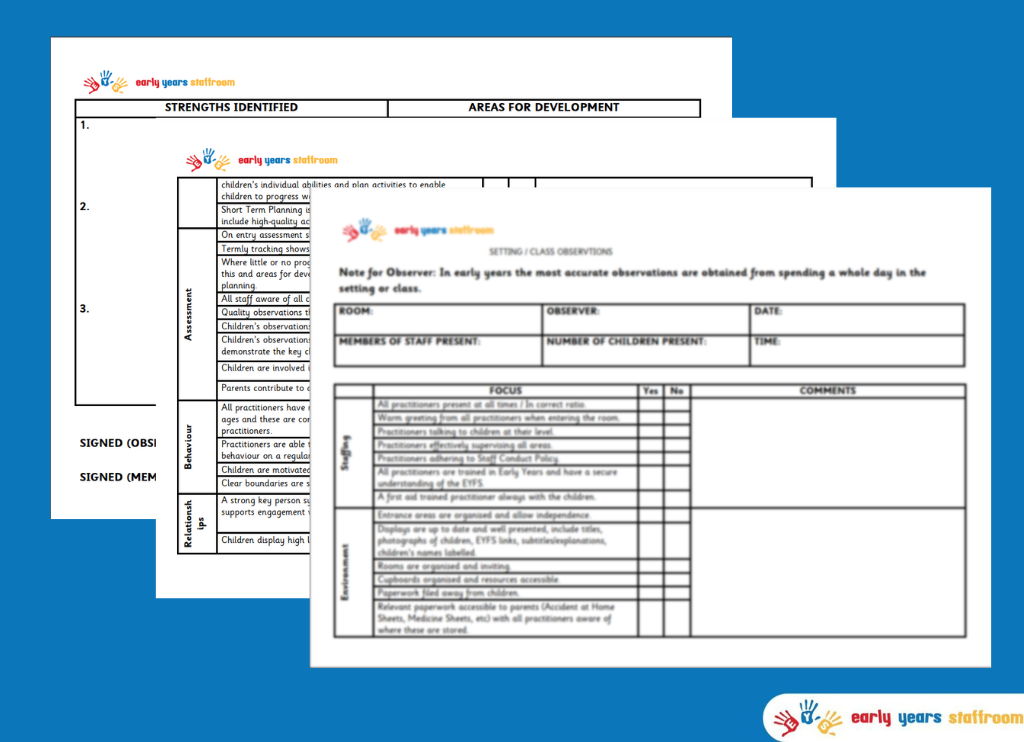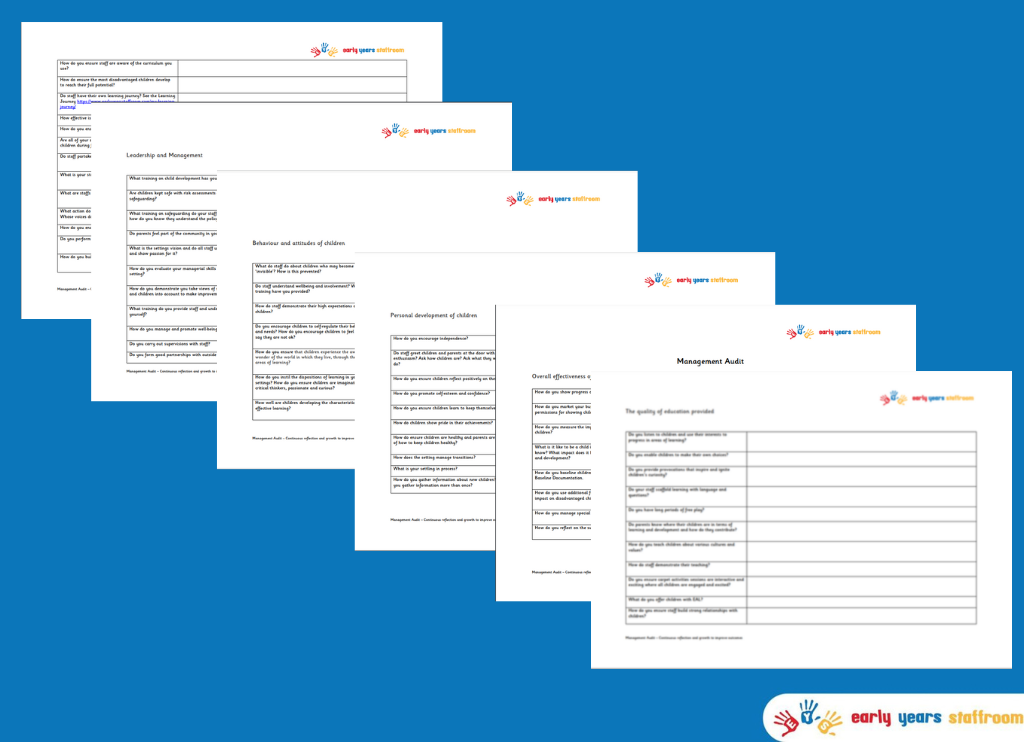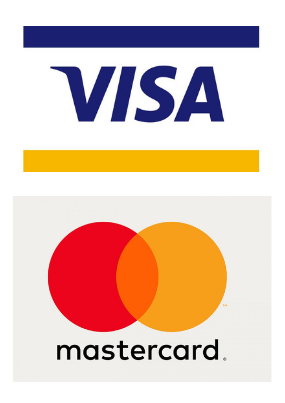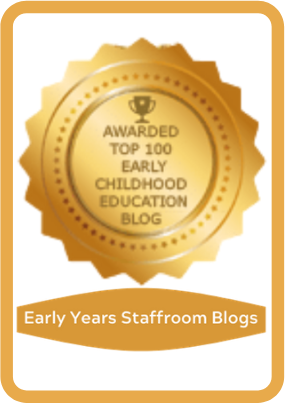Leuven Scales
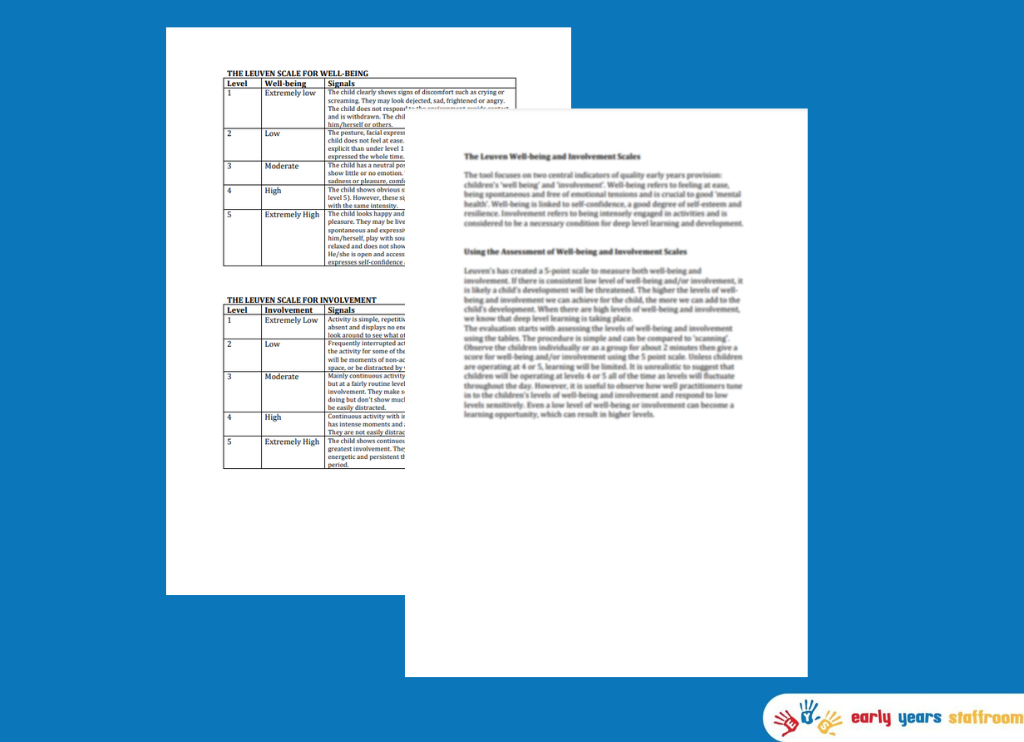
High levels of well-being and involvement are essential ingredients in any class room especially early years. This chart will help you identify those children who need support.
The Leuven Scales, developed by Professor Ferre Laevers from the University of Leuven in Belgium, are tools used to measure two essential aspects of young children’s well-being and involvement in early years settings:
Well-being: This refers to the extent to which children feel at ease, act spontaneously, show vitality, and self-confidence. It is crucial because it indicates if children feel secure, accepted, and included in their environment.
Involvement: This relates to the deep-level engagement of children in their activities, indicating the extent to which children are operating to their full capabilities.
The Leuven Scales are important for the following reasons:
Child-Centred Assessment: They provide a qualitative measure that focuses on the child’s experience rather than purely academic or skill-based outcomes. This emphasizes the importance of emotional and experiential factors in learning.
Early Identification: They allow educators to identify at an early stage if a child is not well-engaged or if their well-being is compromised. Early identification leads to timely interventions.
Informed Interventions: Based on the results of the Leuven Scales, educators can make specific changes to the learning environment or their teaching approach to better cater to individual children’s needs.
Holistic Development: The scales highlight the significance of emotional well-being and deep engagement in the holistic development of a child, not just cognitive or skill-based progress.
Easy to Implement: The scales are observational, making them non-intrusive. Educators can integrate them into their daily routines without disrupting the natural flow of the classroom.
Rich Insights: Although they might seem simple, the Leuven Scales can provide rich insights into the child’s world, helping educators understand factors that might not be immediately obvious.
Promotion of Reflective Practice: Using the scales encourages educators to continually reflect on their practice, the environment they provide, and the experiences children have in their settings.
Empowerment: By focusing on well-being and involvement, the scales empower children to be active participants in their learning. They promote environments where children feel secure, valued, and are deeply engaged.
Relevance across Diverse Settings: The Leuven Scales can be used across various educational settings and contexts, making them versatile tools for assessing children’s experiences.
Research and Policy Implications: Beyond individual classrooms, the scales have implications for broader educational research and policy. They provide a framework that emphasizes the importance of well-being and involvement in early years education.
In essence, the Leuven Scales offer a nuanced perspective on early childhood education, emphasising the significance of well-being and deep engagement. They align with a holistic view of child development and provide educators with tools to ensure that children have meaningful, enriching experiences in their formative years.
All our planning has been carefully created by experienced qualified primary school teachers with QTS therefore you can be sure that your planning will achieve your outcomes and aims.
Not quite what you were looking for? Search by keyword to find the right resource, or request a resource to be created by experts.
